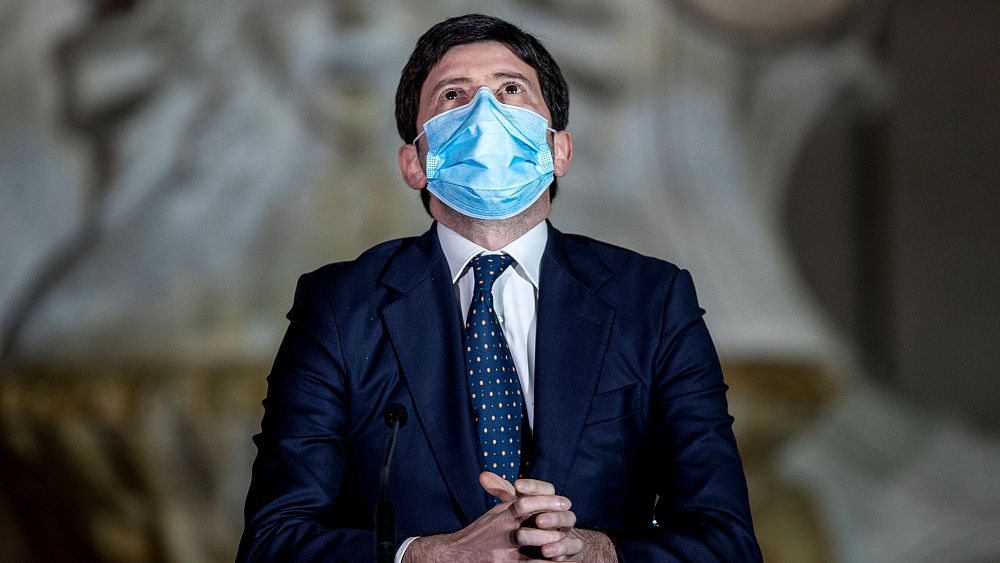All schools in coronavirus risk areas in Italy have been ordered to close by the Italian government.
Secondary schools were already closed due to the spread of the virus, but now all schools in so-called red zones will be shut.
The latest data in the country shows more than 50 percent of COVID-19 cases are due to the new British variant, which is particularly contagious.
“The British variant has a particular ability to spread among the younger generation,” health minister Roberto Speranza told a press conference.
“This has led us to make a choice, namely that schools at all levels in the red zones will move to distance learning,” he said.
The measures will be in place until at least April 6, but at the same time some restrictions are set to be loosened.
Starting on March 27, cinemas and theaters can reopen in “yellow zone” regions with low incidence and virus transmission rates, but these venues must limit capacity to 25%. Museums in yellow zones, already permitted to admit the public on weekdays, can open also on weekends starting March 27.
Gyms and pools stay shut. Also remaining is a 10pm to 5am nationwide curfew, and a ban on travel between Italy’s regions.
In recent weeks, Italy’s incidence of new cases among young people has now eclipsed incidence among the older population, a reversal of how COVID-19 afflicted residents in the first months of the pandemic.
According to the latest classification that came into force on Monday, only two of Italy’s 20 regions are red: Basilicata and Molise in the south of the peninsula.
Lombardy in the north, which includes Milan, Piedmont and Marche are classified as orange zones.
When he took office in February, the new prime minister Mario Draghi promised to use “all means” to try to curb the pandemic which has claimed almost 100,000 lives in Italy and devastated its economy.
On Monday, the former head of the European Central Bank entrusted the management of the coronavirus crisis to a military man.
General Francesco Paolo Figliuolo replaced businessman Domenico Arcuri as special commissioner for the health emergency.
The new decree also extends a ban on travel between Italian regions until 27 March.
Theatres and cinemas will be allowed to reopen on 27 March in the yellow zones, with a capacity limited to 25%, while museums will be allowed to open on Saturdays as well, not just during the week.








